Zona, by Nuno Moreira
Posted: December 20, 2015 Filed under: Photobooks, Photography | Tags: Dream, Lisboa, Moreira, Performance, Portugese photography, Psychoanalitic, Tokyo, Zona 3 CommentsZona is not the easiest book to understand it was given me to see recently. In a very neat formal aesthetics, the book is divided into “chapters” that are punctuated by texts written by José Luis Peixoto. The two overlap remarkably, black and white photos on the white pages and silver text on black pages. The words come chanting issues that emerge in photographs.
As I said above, the book is not an easy access and if we are not careful, we can easily slip on the aesthetics and ease through the book without even realizing the story that weaves itself. But if only one wants to take the time to enter it, this book becomes fascinating. We discover the imaginary of the unconscious, the relation of the self (the ego of the viewer) to himself and the relation of the self (ego again of the viewer) to another. Nuno Moreira plays with the ambiguity of images and text. Do we stand in the picture, or are we the person questioned in search of the other, or more precisely, in search of another presence.
The images have the precision of a dream, the details of a clinical precision that refer to surrealist experiments (tongue and scissors that can not fail to remind the eye of An Andalusian Dog by Buñuel). This book explores the unconscious and guides us without knowing what the outcome will be. Some images, stronger than others (but this is an individual choice), will remain printed in our mind. We do not really understand the narration, but snatches of memory keep coming to that memory makes emerge this impalpable unconscious. We discover ourselves, here to tell our dream, unable to decipher all the signs. Emerges finally what is hard to say but which, brick by brick, built our personality in the individual awareness, but also, and this is very present in this book, in its relation to the other. Nuno Moreira dare sketch here the assertion that we only exist by this relation to the other and thus the loss of this relation is our own loss, the loss of this individuality.
There are also symbolic emotional loads in these images : a key, a milky liquid, hands that touch, that soothe; all of them are deeply charged with psychoanalytic symbolism. The face of a woman, struggling to be revealed. Who is she, hidden back, blur, behind a mask or in the shadow of a door. She reveals herself at the end, only to better escape, leaving behind the withered branch that makes us doubt having seen her for real.
When finally we close the book and we go out of this dream, we are exhausted and excited at once. Flooded with sweat, we debate among afterimages, seeking a way out and a sense of it all. Finally, this book raises more questions than it answers. It has the charm and intimacy that make it a precious object to which one returns constantly in search of a perceived image, to which one reads backwards, like going back in time.
The photos were shot during a live performance organized in sequences directed by the photographer and, if the kinematic side remains present, the layout abstracts itself from reality and takes us by the hand to say: tell us your dream !
Hardcover book with a grey linen cover with title embossed in black. 15 x 21,5 cm, 108 pages with 30 black and white photographs. Limited edition of 300 copies.
More info : http://nmphotos.org/
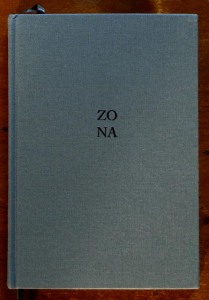
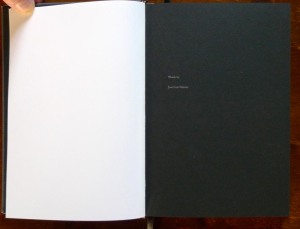
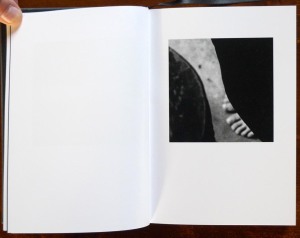
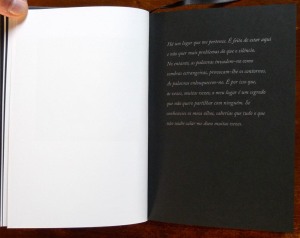
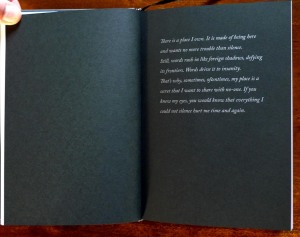
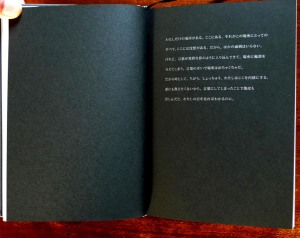
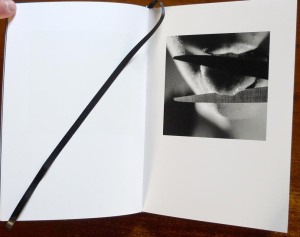
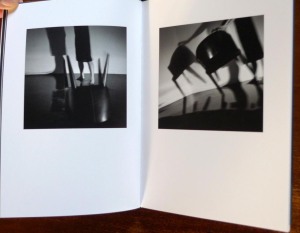
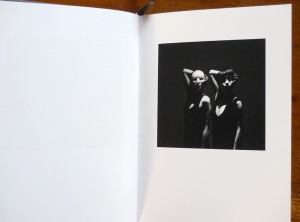
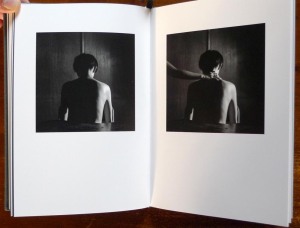
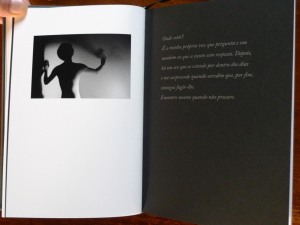
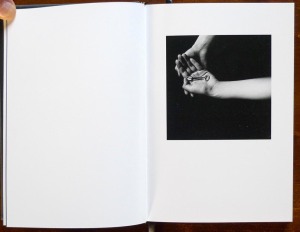
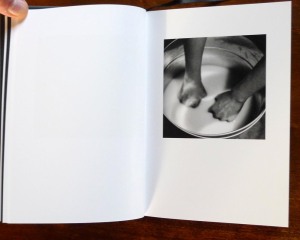
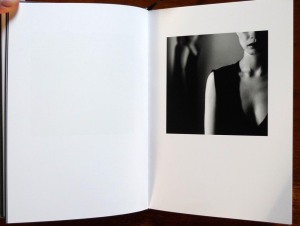
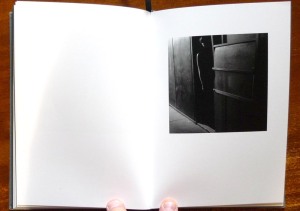
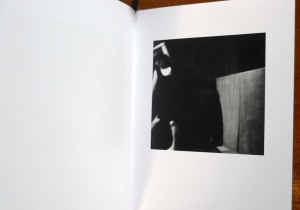
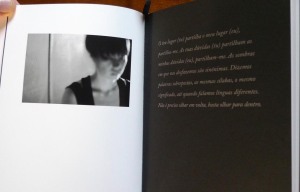
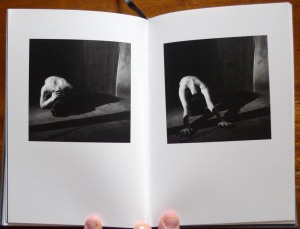
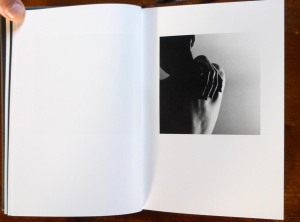
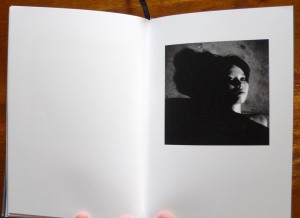
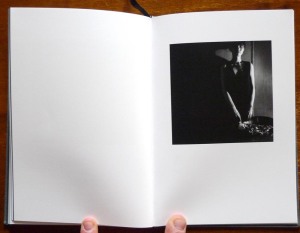
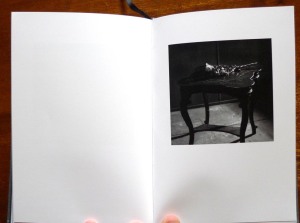
Great review Christophe
Thanks Ian !
[…] Japanese and English. Here and here at Moreira’s site; here at Josef Chladek’s site; review by Christer […]